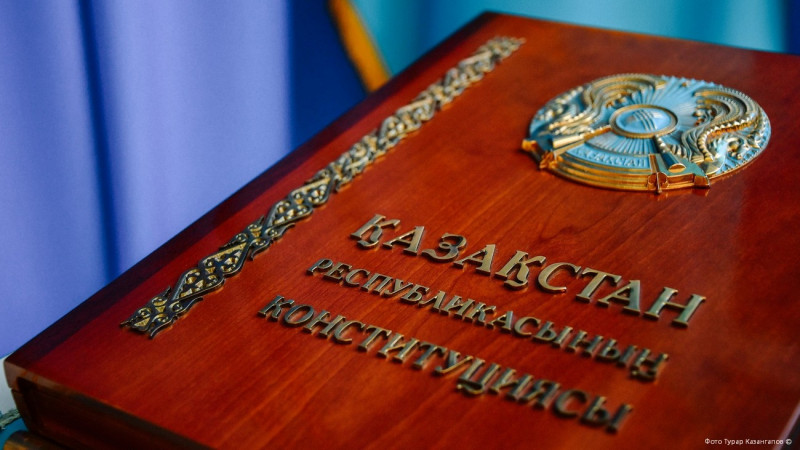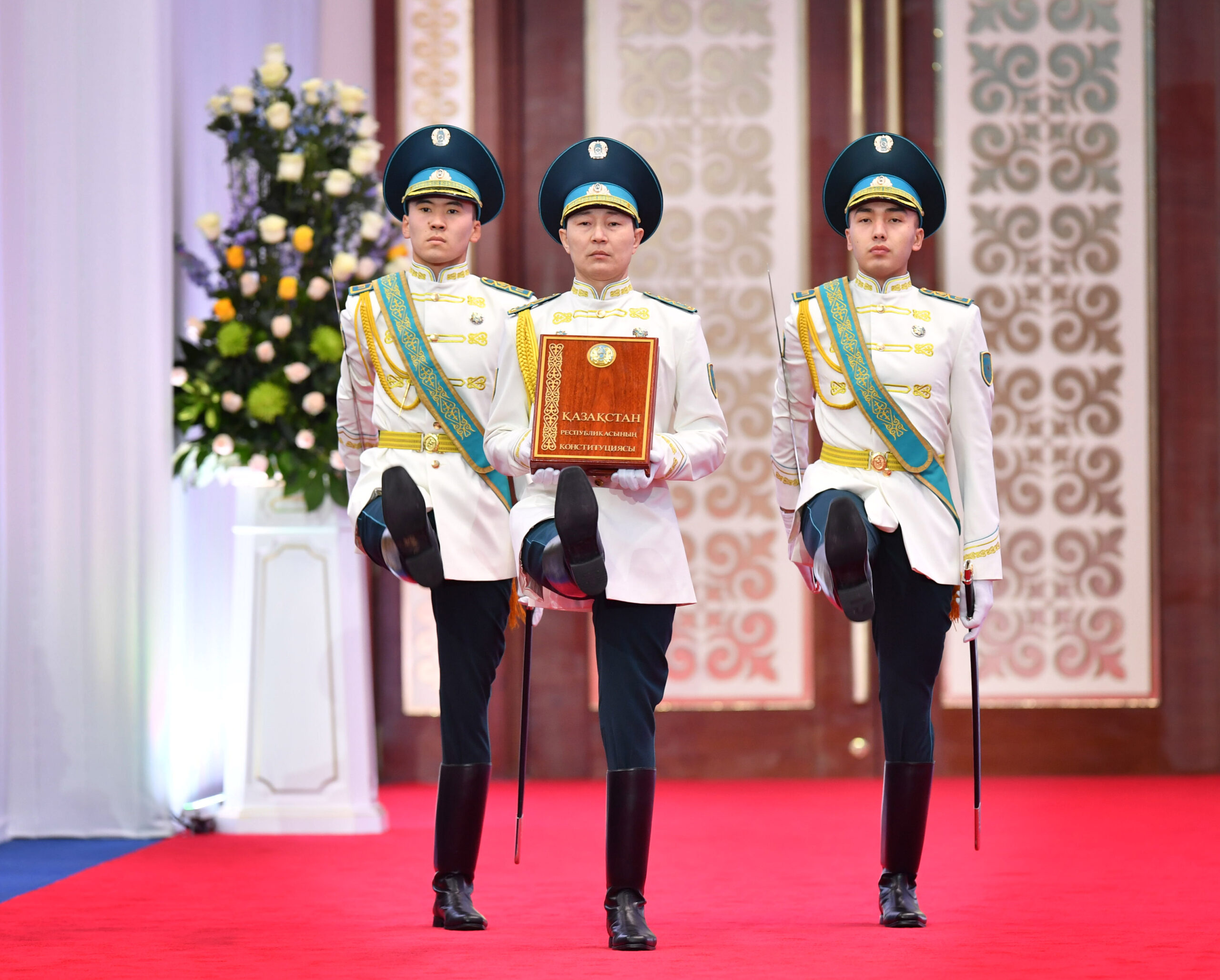ASTANA – President Kassym-Jomart Tokayev congratulated people on Constitution Day, celebrated nationwide on Aug. 30.

As the basic pillar of statehood, the constitution defines the social and political structure, values and strategic vector of the country’s development.
“The Constitution, updated following a nationwide referendum, has become a symbol of consolidation of our nation. It serves as a foundation for the ongoing reforms aimed at democratizing the political system, ensuring the rule of law and improving the welfare of the people. The establishment of the Constitutional Court that strengthened the role of the basic law as a guarantor of the protection of the rights and freedoms of citizens, is one of these institutional reforms,” said Tokayev.
The President noted constitutional principles should not only be strictly observed but also become an integral part of collective consciousness to build a Just and Fair Kazakhstan as a state of equal opportunities for all.
Kazakhstan celebrates Constitution Day on Aug. 30, commemorating the adoption of the country’s Constitution in 1995. This pivotal event laid the foundation for the nation’s legal framework and democratic system of governance. The occasion highlights the major role that the Constitution plays in maintaining stability, advancing democracy, and protecting the rights and freedoms of the Kazakh people.
The Constitution secures fundamental rights, establishes the separation of powers, and upholds the rule of law. It delineates the structure and functions of the government, which include the president, parliament, and judiciary. Over the years, the Constitution has evolved to meet the nation’s changing needs through various amendments.

Photo credit: Akorda.
Evolution of the Constitution
The Constitution has undergone revisions six times: in 1998, 2007, 2011, 2017, 2019, and 2022.
The 1998 amendments affected 19 articles, including presidential terms and authority, as well as the roles of Senate and Mazhilis deputies (the upper and lower chambers of the Kazakh Parliament). They also instituted the proportional representation-based election of ten Mazhilis deputies.
Amendments in May 2007, introduced during a joint parliamentary session, transformed the state structure into a unitary state with a presidential-parliamentary governance model.
Changes in February 2011 aimed to establish the constitutional basis for extraordinary presidential elections.
The law on Amendments and Additions to the Constitution of Kazakhstan was enacted in March 2017, redistributing some presidential powers to other branches of government.
Constitutional changes in 2022
This year, Constitution Day holds special significance as it is the first celebration since constitutional amendments were ratified following a nationwide referendum in June of the previous year. The referendum saw a turnout of 68.05%, with 77.18% of citizens voting in favor of the changes.
These reforms introduced new democratic principles that encourage increased citizen participation in governance and the genuine democratization of political processes. The roles and responsibilities of Parliament and its chambers have expanded significantly, while presidential powers have been curtailed. The President is now limited to a single seven-year term and is ineligible for re-election.
The recent parliamentary election was a milestone in implementing the constitutional amendments to electoral legislation, as endorsed in the referendum. The simplification of the political party registration process has led to the emergence of new parties. Out of the seven parties that participated in the Mazhilis election, six garnered enough votes to surpass the five percent threshold required for parliamentary representation. This has resulted in a diverse, multi-party representative body that embraces various political viewpoints.
The institution responsible for constitutional oversight has been modernized with the formation of the Constitutional Court, which further safeguards human rights and freedoms. The Court directly responds to citizens, including the human rights commissioner and the Prosecutor General, by evaluating the conformity of Kazakhstan’s normative legal acts with the rights guaranteed in the Constitution.
Kazakhstan has also enhanced mechanisms for safeguarding human rights and democracy by elevating the roles and statuses of the Ombudsperson for Human Rights, the Ombudsperson for Children’s Rights, and the Ombudsperson for Protecting People with Disabilities.
The Constitution establishes that land, its subsoil, water, flora, fauna, and other natural resources belong to the people, with the state exercising ownership rights on their behalf. As President Tokayev emphasized, the well-being of each family and citizen is paramount for the state, reiterating that a nation’s true greatness is built on this foundation. Therefore, the national economy should operate to advance the interests of the people.

